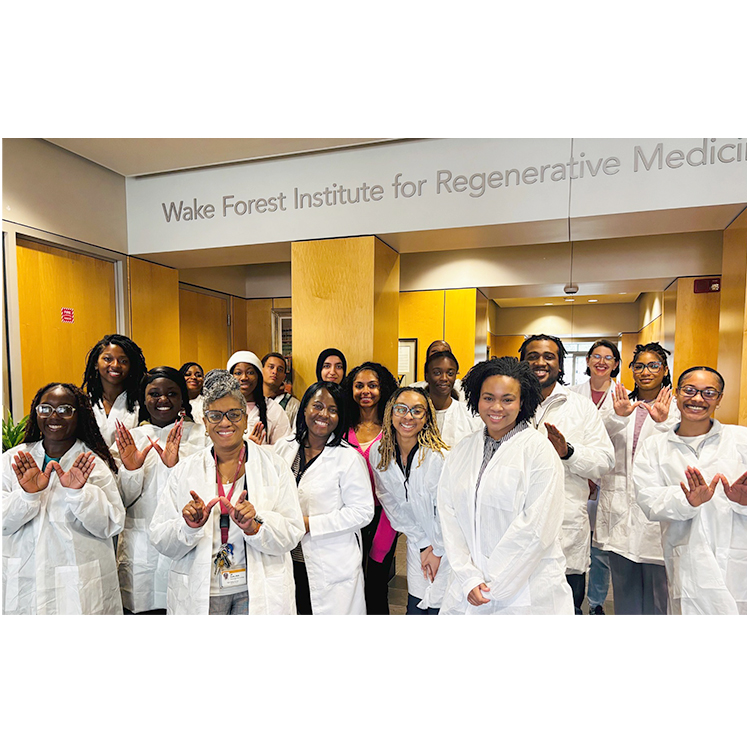WSSU students gain hands-on experience in regenerative medicine at Advanced Cell Techniques workshop
A group of 15 students from Winston-Salem State University recently stepped into the future of healthcare during the Advanced Cell Techniques for Regenerative Medicine Workshop held at both WSSU and the Wake Forest Institute for Regenerative Medicine (WFIRM).
The students, with majors spanning biology, chemistry and nursing, engaged in hands-on learning during the interdisciplinary workshop, spearheaded by Dr. Sarah Adjei-Fremah (WSSU Department of Biological Sciences) and Dr. Jill Keith (WSSU Department of Chemistry), offering students rare exposure to tools and concepts at the forefront of regenerative medicine research.
Dr. Mesia Steed, chair of the WSSU Department of Biological Sciences, opened the event by emphasizing the critical role of advanced laboratory training in expanding students’ research skill sets and professional pathways.

The event was supported through funding from the National Science Foundation Engines (NSF) Grant, which focuses on boosting workforce development and economic mobility in the Piedmont region.
As principal investigator for WSSU’s ITEC project under the NSF Engines Grant, Keith highlighted available opportunities for internships and careers in biotechnology and regenerative medicine, reinforcing the workshop’s role in career readiness.
The first half of the workshop, held at WSSU, introduced students to traditional and next-generation cell culture techniques. Michael McNeil of the WSSU Biomedical Research Infrastructure Center, demonstrated workflow fundamentals, while Adjei-Fremah led a session on xeno-free media and the growing impact of chemistry in clinical cell therapies. Students also explored small molecule synthesis during a live demo in a chemistry lab, learning how these components power modern cell culture systems.
Later in the day, students visited WFIRM, where they were greeted by Dr. Frank Marini and Katie Benson. The visit included guided tours of advanced biomedical engineering labs and demonstrations of powerful imaging technologies such as the HoloMonitor, Light Sheet Microscope, and the Incucyte live-cell imaging system. Participants observed HepG2 liver cells grown under xeno-free conditions using small molecules synthesized at WSSU.
“This workshop was a great opportunity for our students to explore advanced, cutting-edge tools and techniques in regenerative medicine,” Adjei-Fremah said. “With AI integration in systems like the Incucyte, we can now monitor cell growth and morphology in real time, opening exciting new avenues for both research and clinical applications.”
Student feedback reflected enthusiasm and a budding interest in pursuing careers in regenerative medicine and biotech. Many described the experience as eye-opening and inspiring.
This high-impact, collaborative initiative reflects WSSU’s commitment to experiential learning and scientific innovation, ensuring that Rams are well-equipped to lead in the health sciences of tomorrow.
